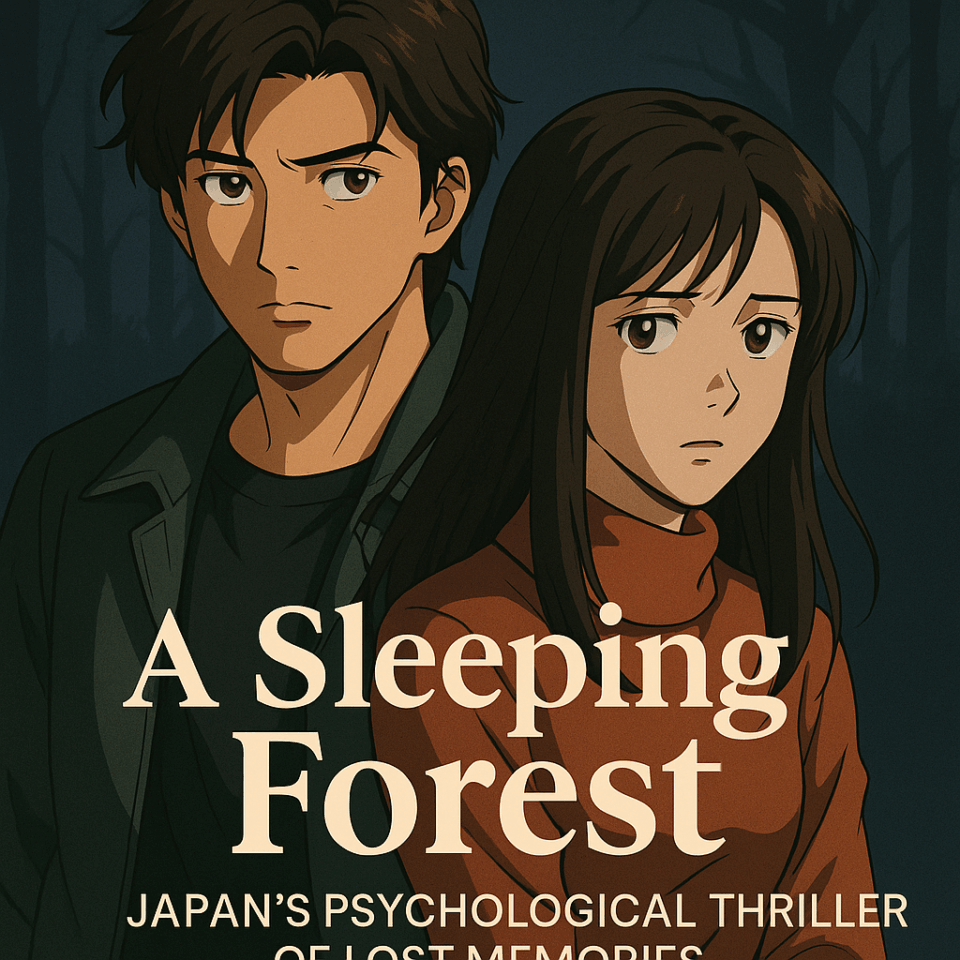What happens when a perfect life is slowly unraveled by letters from the past?
“Sleep
📺 概要
- Title: Sleeping F
- Genre: Mystery / Psych
- Aired: Oct
- Starring: Miho Nakayama, Takuya Kimura
- 脚本:Hisashi Nozawa
- Theme Song: “Camouflage” by Mariya Takeuchi
- In: “With or Without You” by U2
- Viewership Rating: Peaked at 30.8%
🧩 The Plot (Spoiler-Free)
Minako, a quiet botanist engaged to a corporate elite, finds childhood love letters while packing for her new life. One message lures her back to her hometown forest on Christmas Eve, where she meets Naoki—a mysterious man who seems to know her entire past. As her repressed memories resurface, so do the unsolved crimes from 15 years ago.
🎵 テーマソング
“Camouflage” by Mariya Takeuchi – A soft yet chilling melody that perfectly mirrors the drama’s layered mystery. The lyrics are ambiguous, poetic, and almost predictive of the twists to come. It’s said that even the opening title visuals hide clues to the show’s ending.
▶️ Listen on YouTube
🎶 挿入歌
U2の「With or Without You」 – 日本のドラマで西洋のロックが使われるのは珍しく、この曲はシリーズ全体を通して愛と裏切りの間の感情的な緊張を増幅させます。
🌍 Why Foreign Viewers Will Be Intrigued
✅ A haunting portrayal of repressed trauma and adult children (ACoA)
✅ Mystery unfolds slowly, like a puzzle—rewarding patient viewers
✅ Japanese cultural layers: guilt, family expectations, and unspoken trauma
✅ Kimura Takuya in a role that perfectly balances charm and menace
✅ Unique to Japanese dramas: ambiguity over justice and closure
🗾 Cultural Keywords Explained
- ACoA (Adult Children: A term often used in Japan to describe adults dealing with unhealed emotional wounds from dysfunctional family dynamics.
- Omiai (Arranged Marriage): Though not explicit, the pressure to marry “well” is present, highlighting societal norms around status and age.
- Mystery dramas in Japan: Unlike American thrillers with clear culprits, Japanese mysteries often leave ambiguity and emotional tension rather than courtroom resolution.
- Christmas Eve as a date: In Japan, Christmas Eve is considered a romantic holiday—not a family one. A subtle cultural difference that adds eerie tension to the story’s timeline.
🎬 Where to Watch
Not currently streaming internationally.
📀 Available on DVD (JP Region)
👉 Try Japanese retailers or auction sites; check for VPN-based Japanese services if streaming rights update.
🏞️ Sacred Locations & Real-Life Spots
Filmed partially in rural Tochigi and Saitama, some forest scenes are fan-pilgrimage spots.
If you visit Japan:
- Combine a visit with a Tokyo trip
- The show’s eerie tone adds depth to otherwise peaceful countryside scenery
❓ Cultural Gap to Note
“Why does no one openly talk about the trauma or call the police immediately?”
In many Japanese dramas (and real life), emotional pain is internalized. Victims often fear shame or burdening others. This quiet endurance is considered “strong” in Japanese values—very different from Western ideals of speaking out.



